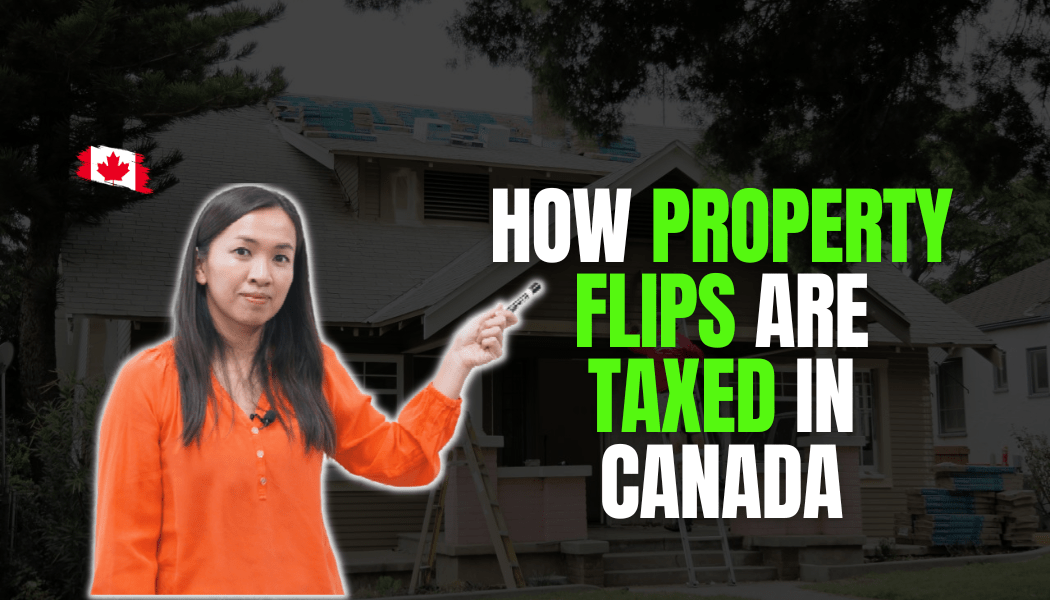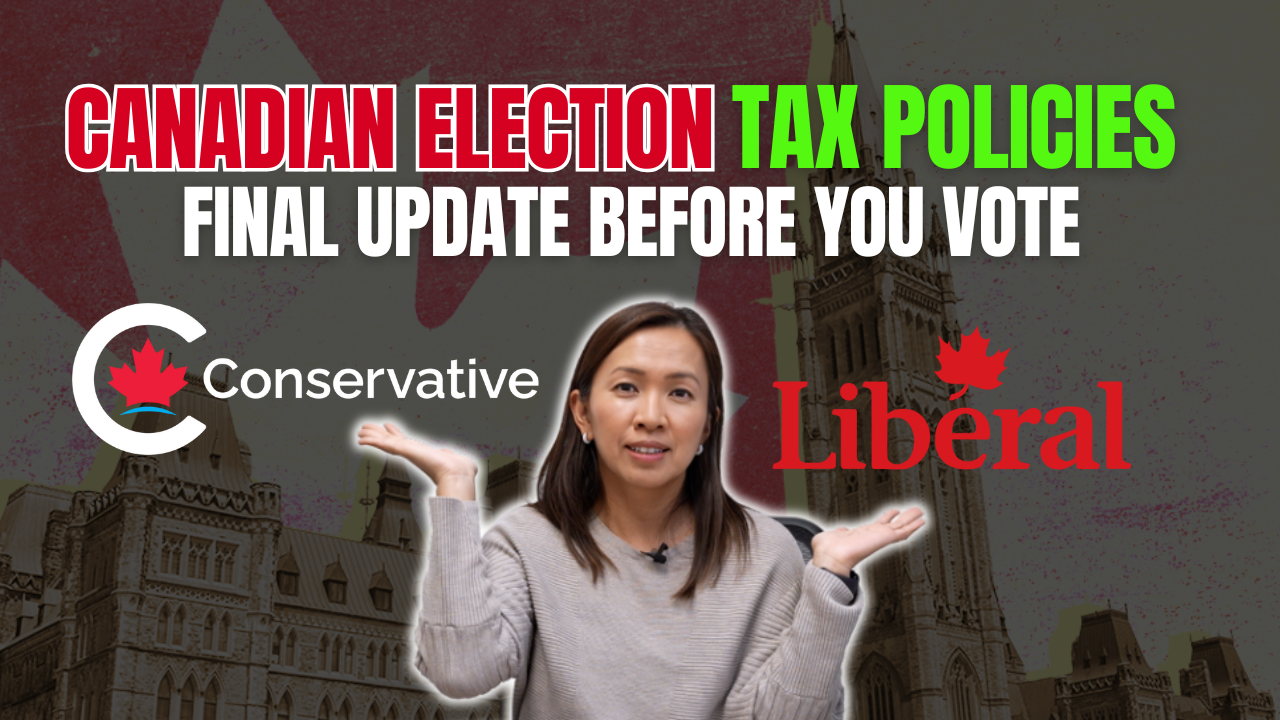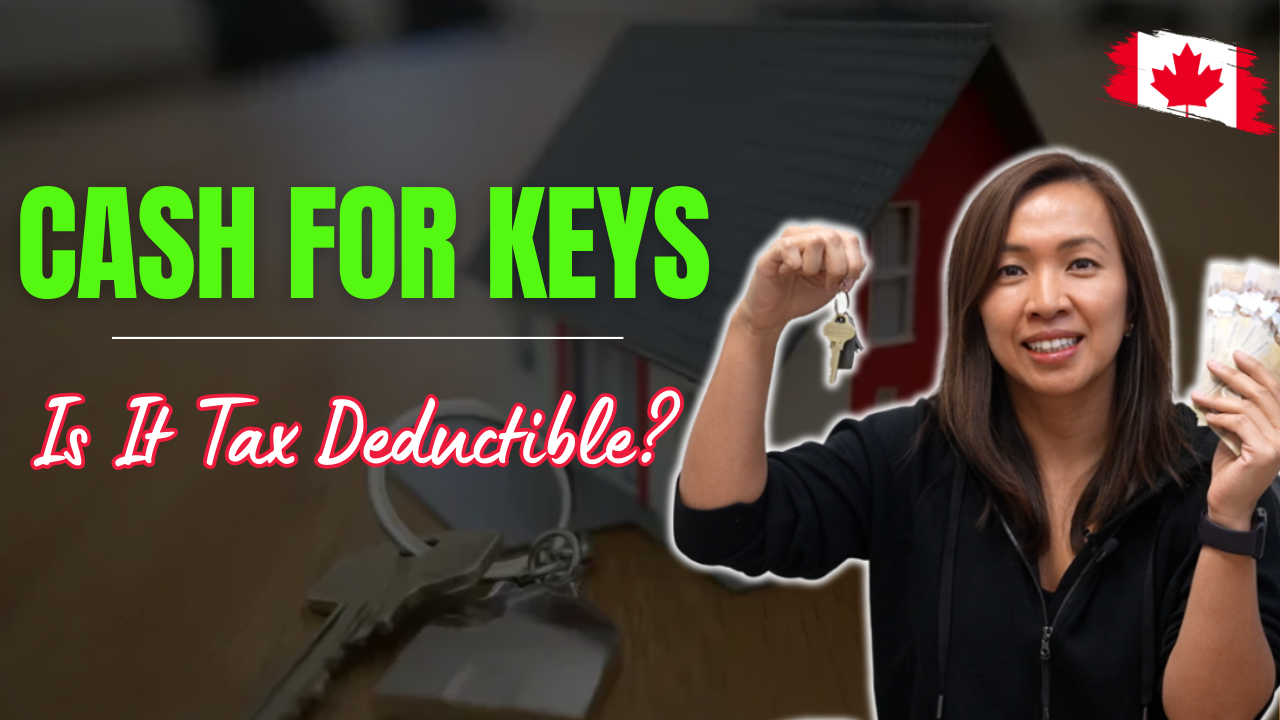Flippers and renovators often overlook the tax implications of their property transactions, leading to costly misconceptions.
One such misconception is the belief that only 50% of the profit from selling a house is taxable.
However, if the property was not intended for rental, the entire profit from a quick flip is considered income and is 100% taxable.
For example, if the profit from the flip is $100K, this entire amount is added to your income.
At the highest marginal tax rate in Ontario, round it down to 50%, $50K goes to the government, and you are only left with $50K.
If you report the flip incorrectly as capital gain, CRA may even impose a penalty on top of the amount due. This can substantially increase the tax liability.
What’s considered property flips?
Property flips can take on various forms and can involve different types of properties. Here are some examples of what’s considered property flips:
- Assignment Flips: An assignment flip is when a buyer purchases a property and then assigns the contract to another buyer before the closing date. The second buyer completes the transaction and takes possession of the property.
- Preconstruction Home Sales: Preconstruction home sales involve buying a property from a builder or developer before construction is complete and then selling it for a profit before or after the completion of the project.
- Land Flips: Land flipping involves buying a piece of land and then selling it quickly for a profit without making any improvements or changes to the property.
- Buying a House, Renovate, Sell for a Quick Profit: This type of flip involves buying a house, renovating it, and then selling it for a profit. It typically involves buying a property below market value, making improvements to the property to increase its value, and then selling it for a higher price.
- Wholesaling: Wholesaling involves buying a property below market value and then selling it quickly to another investor without making any improvements to the property.
How to Decide if Your Sale Is Considered a Flip
CRA has implemented the new anti-flipping rule starting January 1, 2023. If you sell a property within 365 days after you purchase the property, you are required to report the profit you make as business income, unless you meet one of the exclusions.
You can find out more about this in this previous blog post.
Now, assuming that you’ve owned your properties for more than 365 days, how would CRA decide if the sale is considered flips or long-term capital gain?
As it turns out, the Income Tax Act doesn’t have any specific guidance. It relied on previous court cases to setup some rules for guidance.
Here’re the 12 factors that CRA and tax courts look at (yes, it’s truly 12 factors 😫😫😫)
- Taxpayer’s intention
- Feasibility of taxpayer’s intention
- Geographical location & zoned use of real estate required
- Extent to which intention is carried out by the taxpayer
- Evidence that the taxpayer’s intention changed after the purchase of real estate
- Nature of the business, professional, calling or trade of the taxpayer and associates
- Extent to which borrowed money was used to finance the real estate acquisition & the terms of the financing, if any, arranged
- The length of time of ownership
- Existence of other partners who have interests in the real estate
- Nature of the occupation of the other person referred to in (9) above, as well as their stated intentions and courses of conduct
- Factors which motivated the sale of the real estate
- Evidence that the taxpayer and/or associates had dealt with extensively in real estate
Have I lost you yet?
No? Good, you might have the potential to become a professional accountant.
If you are feeling a bit lost, watch the YouTube video for an explanation of these 12 criteria that CRA & prior court cases establish to analyze the transactions:
If you are a true flipper, your income is taxed as business income. Simple as that. Set up the proper structure to minimize the amount of taxes you would otherwise have to pay.
Tax implication on house flipping
Net profit (after deducting all the expenses) is reported as business income if you own the property, you flip in your personal name.
As we all know, in Canada, we’re under a progressive tax system. The more money you make, the more tax you would have to pay.
Let’s use an example to explain. Say you are earning $100K from your day job, you flip a property and earned an additional $100K net profit. What would your tax implication be?
Well, when you make $100K job income, you’re only required to pay $22K of tax payable.
When you make an additional $100K income, you have to pay $45K more. Yes, you would need to pay an additional $45K on an additional $100K of income.
Sometimes you wonder if our government is really trying to motivate us to take control of our finances.
You would have a combined total of $67K of personal income taxes payable. Ouch!
You can see a more visual presentation in this YouTube video.
But…what happened if you earn this $100K of profit from flips in a corporation?
House flipping business is considered active business income. In Canada, profit from house flipping can be taxed as low as 12.2% in a corporation.
With a $100K profit, your tax payable inside the corporation is $12,200.
$12,200 taxes in a corp vs. $45,000 in your personal name? Which one would you take?
The difference between what you would have to pay in your personal name vs what you would have to pay in the corporation name is the personal income tax. The delta of $33K represents tax deferral, not permanent tax savings.
What if you incur a loss?
Well, if you incur a loss from flipping properties, which is not uncommon in today’s market, you report the loss from flips on your personal tax returns, assuming that the properties are held personally.
If your losses are reported in your personal name, the losses can be used to offset against other personal income, including employment income and rental income.
Offsetting business losses can potentially trigger a tax refund assuming your employer made sufficient source deductions remittance to CRA.
If you own your flips in a corporation, the losses incurred can be used to offset against profit you’ve made from other property flips or offset against all other income earned in the same year.
If you don’t have any other income, losses incurred can be carried back 3 years and carried forward for 20 years to apply against other years’ income.
How to Minimize Taxes Paid on Flips
Whenever I get asked, ‘How do you minimize the tax you pay?’ The number one answer to the question is TAX PLANNING.
If you are flipping properties for profit, here are some strategies you can use to minimize the taxes you pay.
- Earn income through a corporation to help with tax deferral and legal liability protection.
Flipping projects come in all sizes, and regardless of the project’s scale, it’s important to have proper insurance in place to mitigate potential risks.
One unfortunate incident, such as a burst pipe, can wreak havoc and leave you with unexpected costs.
However, by taking precautions and using separate legal entities like a corporation, you can add another layer of protection to your personal assets.
if you are doing flips inside a corporation, profit from flips is considered active business income. Active business income is subjected to 13.5% corporation tax in 2018 and will be 12.5% corporation tax in 2019.
If you were to earn the same amount of income in your personal tax, you are liable to pay taxes based on your marginal tax rate, which can be as high as 54%.
- Move into the property for a short while to avoid taxes:
Some flippers and renovators may decide to move into the property to avoid tax liability.
The idea is to live there for a short time, move back to their primary residence, and then sell the property, hoping to use the primary residence exemption to shelter the gain.
However, qualifying for the primary residence exemption is a two-step process.
First, the property must be considered capital property, which involves several criteria evaluated by the CRA, including intention.
Proving that your intention was to truly move into the property can be difficult, and if your real intention is to flip, you are unlikely to pass the first test.
Other factors, such as whether the transactions are part of your regular business or the frequency of transactions, are also considered.
If your true intention is to build a home for personal use, then you are eligible to use the primary residence exemption to shelter all the capital gain.
- Deduct all eligible expenses:
As a flipper/ renovator, you can deduct all eligible expenses incurred for the purpose of generating income from your taxes.
These expenses include repairs, maintenance, interest on loans, property taxes, insurance, and other related costs.
Keep detailed records of all expenses to ensure that you claim the maximum deductions available.
- Consult with a tax professional:
A tax professional can help you determine the best tax planning strategies for your specific situation.
They can provide advice on the best tax strategies to use based on your investment goals, the type of property you own, and your overall financial situation.
Please note that minimizing taxes on flips requires careful planning and a thorough understanding of the tax laws.
10 Common tax deductions you can make as a flipper
Maximizing your deductions can significantly reduce your tax liability and increase your profitability.
Here are 10 common tax deductions that real estate flippers can take advantage of to minimize their tax burden.
- Acquisition costs, legal costs and any other closing costs –
Don’t overlook potential deductions such as legal fees, land transfer taxes, title insurance, and other closing costs when flipping a property. It’s important to research typical closing costs in your area as they can vary widely.
To claim these expenses, carefully review the trust ledger.
- Fees you paid to the wholesaler, financing costs you paid to your mortgage broker, etc.
- Carrying cost of the property – property taxes, insurance, mortgage interest, hydro, utilities, lawn care, snow removal, you name it.
Make sure to keep track of these expenses so you can deduct them against your profit.
- Interest on money borrowed for initial downpayment
- Material cost, labour and contractors fees.
You can deduct expenses that are incurred for the purpose of generating income, such as direct material costs, labour and contractor fees.
These expenses are directly linked to generating income and are, therefore, tax deductible.
For instance, if you renovate a bathroom with new plumbing, frameless shower doors, new tiles, and a new toilet, the cost of those items and the labour involved in installing them are all tax deductible.
It’s important to keep meticulous records of these expenses and ensure they don’t fade over time, as some receipts may become illegible after a certain period.
- Automobile expenses
To maximize your deductions, keep track of the mileage you drive to and from the renovation site, as well as any other expenses incurred while using your vehicle for work purposes.
These expenses can be deducted against the income generated from the property flip.
Keep a detailed record of the mileage and expenses to ensure accuracy and avoid potential issues with the CRA.
- Advertising
Advertising expenses incurred to assist in selling the property are tax-deductible, including staging costs, cleaning expenses, printing signs and flyers, and advertising costs on local newspapers, Kijiji, and other platforms.
- Home office expenses, if you don’t have a dedicated office
To reduce tax liability, home office expenses can be claimed if a portion of the home is used for business purposes.
This is a common situation for many flippers and renovators who do not have a dedicated office space.
- Closing costs such as realtor commission fees, mortgage penalties, legal fees
Maximize your deductions by keeping track of closing costs such as realtor commissions, legal fees, and mortgage termination charges, which are all deductible against the sale of the property.
- Any other expenses you incur for the purpose of earning flips
If you need advice on flipping houses, book a consultation with us, your professional tax advisors.
Keep in mind that every situation is unique, and the tax implications for flipping a property can vary, so it’s important to seek personalized advice.
Until next time, happy Canadian Real Estate Investing.
Cherry Chan, CPA, CA
Your Real Estate Accountant





